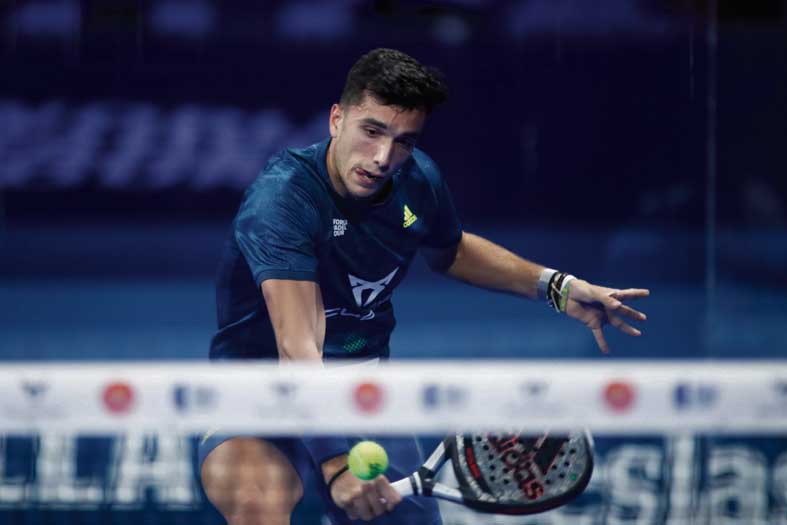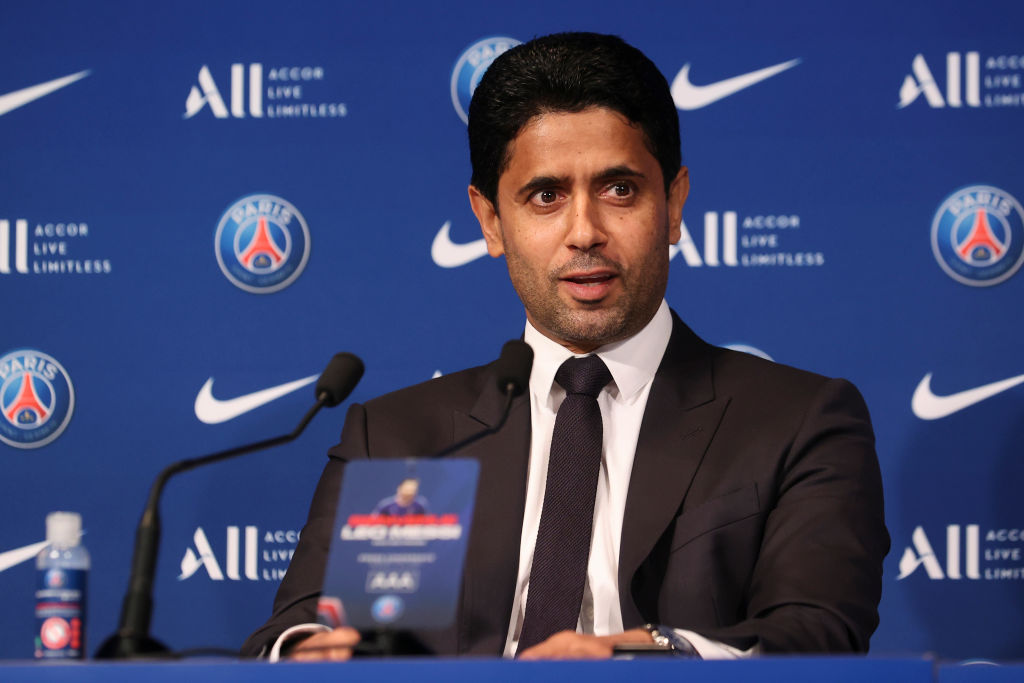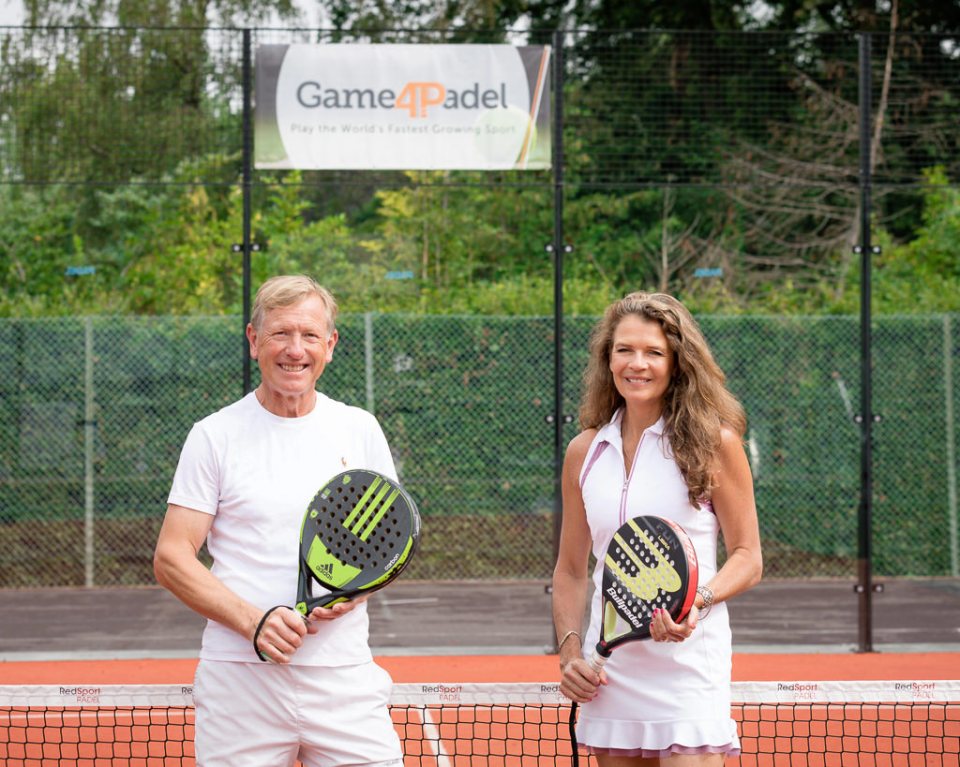Padel: The racket sport proving a smash but heading for the courts

It’s loved by footballers, boasts celebrity investors and is among the fastest growing sports in the world, yet you may not even have heard of padel.
The fast and furious hybrid of tennis and squash has long been hugely popular in Latin countries but recently participation has rocketed elsewhere, including the UK.
Now it is at a crossroads, with one of sport’s richest funds, Qatar Sports Investments (QSI), keen to accelerate its growth by launching a lucrative new global circuit for top players.
But the plans are at the centre of a bitter legal row that looks set to escalate over the next few days and shape the future of the sport.
A deal with QSI, which owns Paris Saint-Germain, would only deepen the existing ties between padel and football.
Premier League managers Jurgen Klopp and Pep Guardiola are both such fans that they had courts installed at their clubs’ training grounds.
Former Manchester United star Zlatan Ibrahimovic has been credited with fuelling a boom in Sweden after launching a chain of padel clubs in his home country.
French great Zinedine Zidane, meanwhile, opened his own padel venue in Provence last year by playing a match with men’s world No1 Alejandro Galan.
Padel’s biggest markets are Spain and Latin America, where it was invented in 1969 by a Mexican billionaire on an adapted squash court.
It is second only to football for amateur participation in Spain and Argentina, the two countries that provide almost all the players on the pro circuit.
The World Padel Tour, which stages tournaments almost exclusively in Spain, attracts thousands of spectators daily and set new attendance records last year.
Those competitions can also achieve higher television audiences in padel’s biggest markets than events on the men’s and women’s elite tennis tours.

How padel has grown in UK and around the world
Over the last few years, however, the sport has begun to take off beyond its Hispanic heartlands.
Sweden now has half a million amateur players thanks in part to Ibrahimovic, who established five outposts of his Padel Zenter chain.
It has also gained a foothold in Asia and the Middle East, where Qatar hosted last year’s World Championships.
“We’ve seen the padel bandwagon grow and grow,” says Michael Gradon, chief executive of the UK’s biggest operator, Game4Padel.
Britain has been slower to catch on but, with some heavyweight backing, the sport is now beginning to accelerate here too.
The number of courts has trebled to around 150 since 2015 and there are hundreds more in various stages of planning and construction.
John Leach, Great Britain’s national coach, gives classes in both tennis and padel at Chelsea’s Harbour Club.
From an 80:20 split in favour of tennis previously, padel now takes up the vast majority of his sessions, he told City A.M.
People like padel because it is easy to pick up and appeals to a broad spectrum of players, Leach says.
Serves are underarm, making it less technical than tennis, and rallies are easier to get into and sustain.
The glass walls that surround the court keep the ball in play for 50 minutes per hour, compared to just 15 in tennis.
Padel is also more sociable, as it is always played in pairs, and it has a fairly even split of male and female participants.

British padel organiser backed by Andy Murray
The Lawn Tennis Association (LTA) gave the sport a leg up when it absorbed the running of padel in the UK in 2019.
“From that moment you’ve seen huge interest that wasn’t there before,” says Leach, who also runs events through his company Home Of Padel.
Rather than treating padel as a competitor, tennis has tended to view it as a friend and gateway to all racket sports.
This has been a “game-changer” in its growth, says one industry source. Some believe padel, which boasts 20m players globally, will eventually eclipse tennis’s 87m participants.
Padel’s UK profile has also been given a lift by Andy Murray, who was an early investor in Game4Padel after it was founded in 2018.
Murray took to the game during his teenage years as a Barcelona tennis academy and noted its growing popularity among his peers on the tennis circuit.
The two-time Wimbledon champion backed Game4Padel after being approached by Gradon, a former director of the All England Club.
Murray showcased the sport on BBC television in 2020 when he challenged footballer Peter Crouch to a match for Children in Need.
Gradon hopes to tap into latent British demand and make his Murray-backed venture “the David Lloyd of padel”.
He fell in love with the game at La Manga resort in Spain, which he used to oversee when it was owned by P&O, where he was a director.
One of Game4Padel’s gambits is a deal with Westfield to install three courts in its White City mall, opening later this year.
“The growth potential is absolutely enormous in the UK,” Gradon adds.

Qatar-backed circuit could increase prize money 10-fold
Padel is “on the cusp of going really big”, says one industry figure, yet at elite level the sport is in turmoil.
The World Padel Tour, which is run by a subsidiary of the maker of Spanish beer Estrella Damm, has players tied to exclusive contracts until 2023.
But leading pros including No1 Galan are unhappy with their pay and conditions, which bar them from taking part should padel make the Olympics.
In a move they have called “Project Freedom”, players’ association the PPA has joined forces with the International Padel Federation (FIP) to break their contracts.
It helps that they have a more appealing offer on the table, now, too from QSI and Nasser Al Khelaifi, one of the most powerful figures in sport.
QSI has drawn up plans for a global tour featuring four Grand Slam events, like in tennis, which it hopes would start as soon as March.
It promises to increase prize money by as much as 10-fold and give players a say in its running as well as licence to compete in other competitions.
And because the tour would be run in conjunction with the FIP, which reports to the International Olympic Committee, it would open the door to the LA 2028 Games.
“It’s a great endorsement,” says Gradon. “The mere fact that QSI are interested in this shows they recognise that this is a serious, serious sport.”
It is understandable that Qatari investment is being seen as a potentially transformative intervention for padel.
Al Khelaifi’s other roles include chairing international broadcaster BeIN, which would likely show the new tour and sell it to other regions.
Insiders say some of the biggest brands in sport have already approached Al Khelaifi to discuss sponsoring the prospective circuit.
Padel’s civil war heading for European courts
The World Padel Tour is not giving up without a fight, however, and has warned players they face fines if they break their contracts.
Organisers have also announced an improved calendar for 2022 with bigger purses and events in more than a dozen different countries, including the US.
In a letter to players this month, Galan responded by accusing the Tour of a “deceptive approach, exclusively interested and tending to underestimate both sport and athletes”.
It “treats the players as something secondary”, he added. “No successful sport in the world is run under these conditions.”
Time is running out to end padel’s civil war, however, with the Tour’s first tournament slated to start in Miami in three weeks.
The players’ association and federation are understood to be preparing a legal challenge at the European Commission which will argue their contracts are anti-competitive and amount to abuse of a dominant position.
It could be filed as soon as next week. Industry insiders believe it may prove a “killer blow” and pave the way for a new era in padel.
Whether you knew about the sport or not, then, it’s unlikely you have heard the last of padel.
